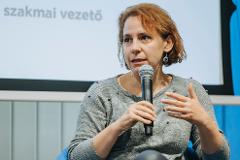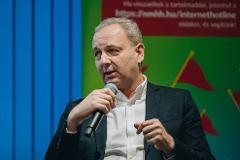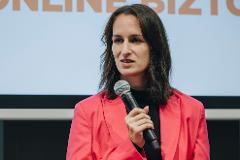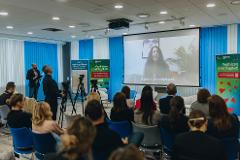The Internet Hotline’s autumn campaign speaks to children as well
More and more children dare to ask for help in case of online abuse
The autumn campaign of the Internet Hotline – the legal advisory service run by the National Media and Infocommunications Authority – aims to combat online abuse, in particular intimate image abuse, grooming and cyberbullying. Thanks to intensive media coverage, the number of reports increased significantly in October, demonstrating the effectiveness of the campaign’s main message: dare to ask for help, there are places you can turn to in case of online abuse.
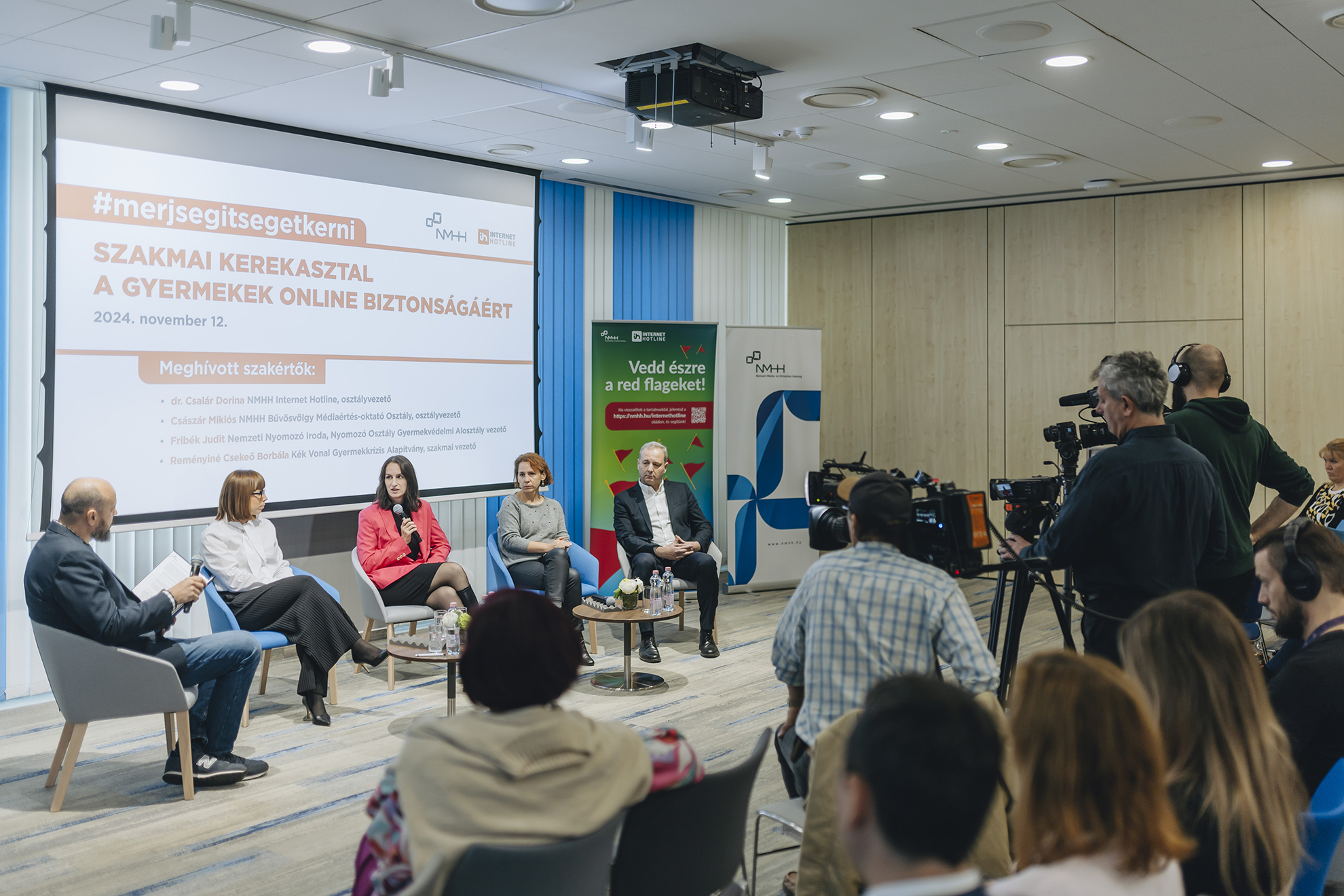
“We all have a role in making online spaces safe for the next generation,” as Abby Roberts emphasized in her video message at a roundtable discussion on 12 November, organised in connection with the Internet Hotline campaign at the National Media and Infocommunications Authority (NMHH) headquarters on Esztergomi út. INHOPE, the International Association of Internet Hotlines, stressed the importance of cooperation and the sharing of knowledge between member organisations, in order to provide effective help against the online abuse of children and young people.
Launched by the NMHH in 2011, the Internet Hotline has handled more than 18,000 reports of online abuse since its establishment. Dr. Dorina Csalár, Head of the IH, stated that the communication and media campaign has led to a noticeable increase in the number of reports. She also highlighted the significant number of reports received from minors, which is both encouraging, showing that they dare to ask for help when they are in trouble, and extremely worrying at the same time, as it indicates that these types of abuses are a growing problem.
Participants in the roundtable discussion warned that there is a growing trend of minors making intimate recordings of themselves and each other, and it is not uncommon for these recordings to be posted on the internet without their consent, where they can be used or manipulated for malicious purposes.
The Kék Vonal Child Crisis Foundation receives 15,000 calls a year to its helpline, according to Borbála Reményiné Csekeő, psychologist and professional leader of the civil organisation. Some of the people asking for help have a very limited understanding of information security, and many do not have the language skills to tell you what really happened to them.
The Internet Hotline works closely with Kék Vonal, where reports of online abuse are first submitted. It is not uncommon for the helpline to be a child’s first choice for reporting that someone has posted an intimate picture of them online. Kék Vonal then encourages them to report the incident as grooming to the Internet Hotline. In many cases, the Internet Hotline can then help the police to find and arrest the perpetrator who obtained the footage through online grooming, thus putting an end to a case that started at Kék Vonal.
“If someone is groomed and asked to take an intimate photo, we always tell them that they should dare to report it at their local police station, because we can help, and we can find these perpetrators. Our unit’s crime detection indicators are very, very good” – emphasized police captain Judit Fribék, acting as head of the Child Protection Division of the Rapid Response and Special Police Service’s Cybercrime Department.
“The high number of calls to Kék Vonal probably also indicates a strong need among young people to talk about their problems” – summarised Dr. Dorina Csalár, noting that it is no coincidence that the motto of the autumn campaign is: Dare to ask for help! The manager of the NMHH’s Magic Valley Network pointed out that creating an atmosphere of trust is always a prerequisite for asking for help. Miklós Császár added that the Magic Valley’s Netkockázat (Net Risks) programme of activities also addresses these issues.
This time, Internet Hotline’s autumn campaign also received support from influencers: Thanks to the collaboration of Pamkutya and the Mélylevegő Projekt (Deep Breath Project), the campaign’s message has reached many younger users on video sharing and social media platforms, children who were previously impossible or very difficult to reach.
The round table discussion was timed to coincide with World Children’s Day on 20 November. This day marks the 35th anniversary of the landmark Convention on the Rights of the Child, adopted by the UN General Assembly on 20 November 1989.
To report online child abuse or online content harmful to children, please contact the Internet Hotline at (nmhh.hu/internethotline), where reports can be made anonymously if needed. Alternately, you can also e-mail the hotline at internethotline@internethotline.hu.
